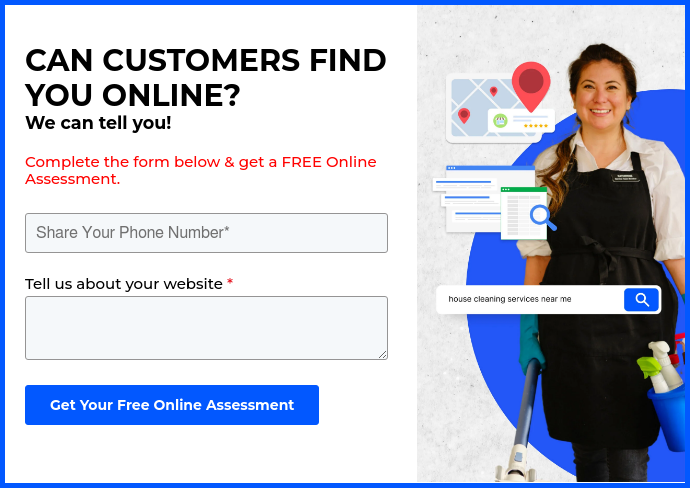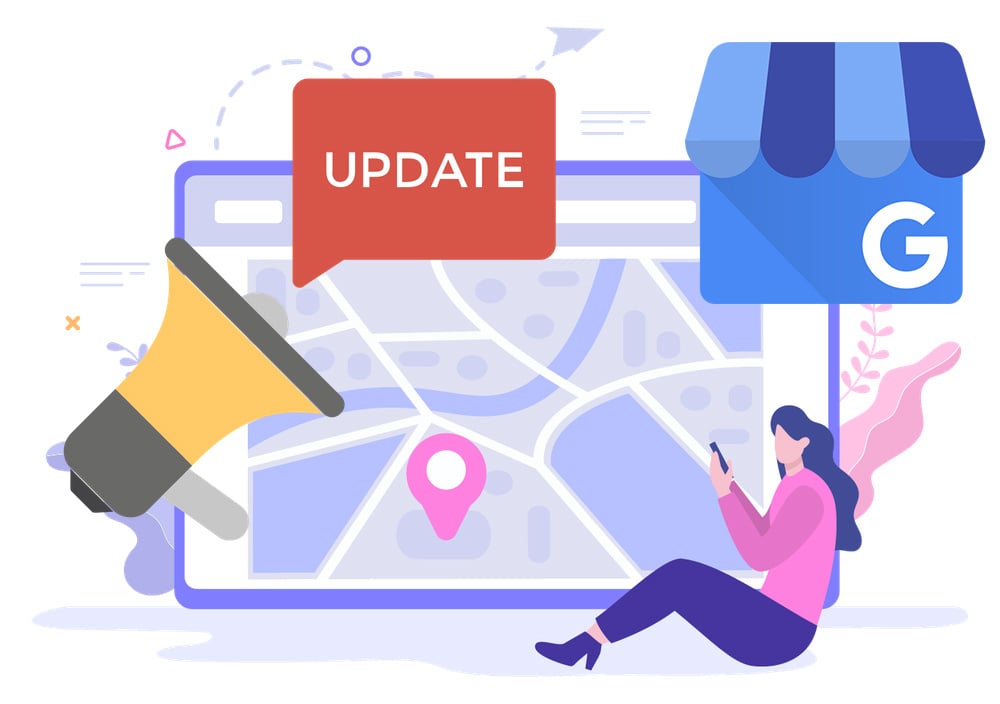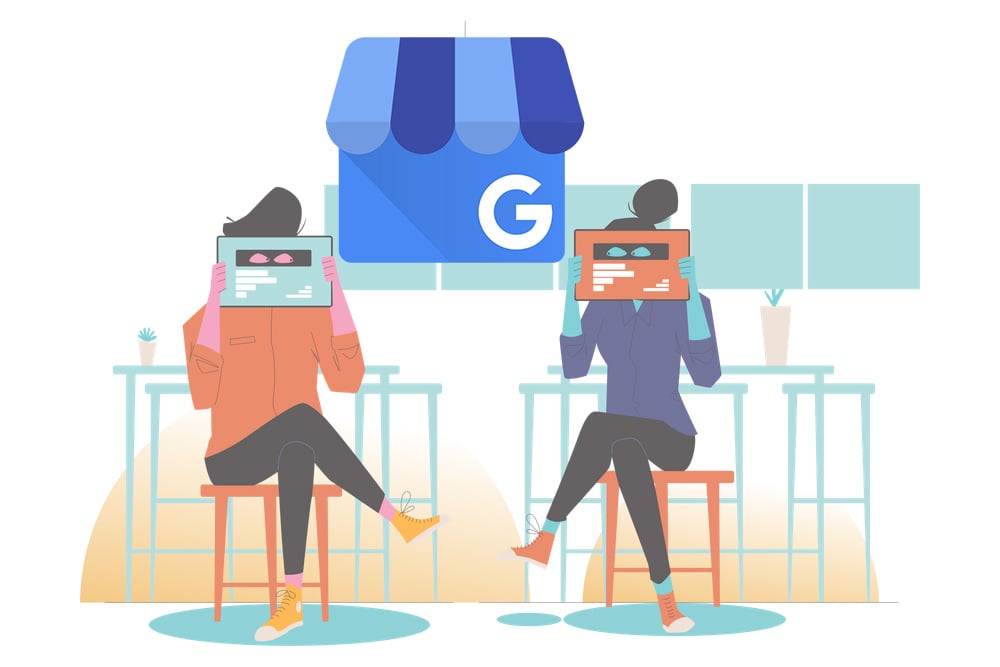Where to Find Professional Images for Your Business Website
Read on for more.

In today’s digital world, every business needs a website, and every website needs high-quality graphics and photos. Why is that?
Visual content is more important than ever—high-quality visual content is a low-lift way to instantly make your website and services come across as:
- Professional and engaging
- Trustworthy, feels like a safer website
- Higher quality, appears to justify a higher price point
Countless studies have found that web content with attractive visuals drives more views, traffic, and engagement than those without.
Venngage found that posts with images produce 180% more engagement and colored visuals increase people's desire to read content by 80%. (Makes sense since our brain processes images 60,000x faster than text.) And when it comes to searching for local businesses, it’s been found that 60% of consumers give more consideration to businesses when the search results have images.
In short, visual content is powerful and necessary across the board.
Note that it’s important to keep copyright laws in mind—you can’t just pick any image off the internet and claim it for your own use. If it’s not from a reputable source that specifically houses images free for business use, you have to pre-determine if and how you can use the image without violating copyright. The consequences of violating copyright are serious, so it’s worth double-checking.
Below are a few surefire ways to get professional photos for your business website.

Use Public Domain Photos

Ultimately, public domain photos are the easiest and safest source for securing photos to use online for your business.
Public domain images can be photos, illustrations, or vector art that’s available to anyone because either their copyright has expired or they never had a copyright owner to begin with. In other words, anyone can use these images for business or personal purposes without buying rights for it.
Some websites where you can get public domain photos are:

Let’s take a moment to highlight one particularly great website for high-quality public domain photos though: Unsplash.
The downside of public domain photos is you often have to search through many to find a diamond in the rough. On the flipside, professional-quality, website-worthy photos are the rule rather than the exception on Unsplash. Unsplash’s library of photos is in the same echelon as paid images, but without the license restrictions. The talented contributing photographers would appreciate attribution, aka a photographer credit underneath the photo, but it’s not required.
Look for Creative Commons Licenses
Photos with a Creative Commons license allows anyone to use them for free, as long as your usage complies with what the specific license allows.
There are six different types of Creative Commons licenses, and they allow for different things so it’s important you pay attention to a photo’s specific license. Some CC photos can be used for commercial purposes—such as your business website—as long as the original photographer is credited, while others can only be used for non-commercial purposes. Some Creative Commons photos licenses allow you to edit or tweak the photo, some don’t. Here’s a breakdown of the six types of Creative Commons licenses:
(Infographic From: David Hopkins Technology Enhanced Learning Blog)
Here are some other websites where you can get photos with Creative Commons licenses:
Purchase Stock Photos

But avoid “stock” photos. You know the ones—the corporate handshakes, the generic office space, the landscape you’re pretty sure was a Windows 98 background. Stock photos get a bad rap because of these overused cliches, but that’s not all they have to offer.
Stock photos are photos that photographers and creators let anyone use, as long as the users are willing to pay a licensing fee. (Though, you can usually get a few free images upon initial sign-up or if you sign up for their email newsletter.)
Stock photo sites like Shutterstock are a good source because, for a reasonable price, they offer a massive library of high-quality photos for just about anything you can think of. Top stock photo sites are:
Note: Some stock photos may still have limitations as to how or where they can be used so make sure to read the licensing agreement thoroughly.
Repurpose Social Media Posts

Social media can be an excellent resource for photos, especially photos from your customers, but make sure you get usage permission. While many social media images aren’t professionally shot, they can still be subject to copyright. Media sharing platforms often have copyright policies prohibiting the use of photos on social media without permission from the owner, even if the account is public.
Social media is a great and free platform to get good photos for your business but make sure to ask for permission from the owner first and credit them accordingly.
Use Your Own Photos

If you have photography experience—or a camera and a willingness to learn—this is a no-brainer! Though it may take a little more time, you know you can use any photos you take without violating copyright, and the photos will be original so you know it’s fresh content.
Don’t be afraid to reach out to friends or family with a penchant for photography either—or even your niece that loves her iPhone and Instagram. You don’t need to shell out for an expensive camera these days, most smartphones can shoot high-quality images. You can make them look more professional by considering the lighting, background, and framing, and making a few tweaks using one of the many free photo editing apps available.
Invest in Professional Photography

Finally, you can also hire a photographer to take photos for you and your business. Just be sure to establish the terms of use beforehand to ensure future commercial usage rights. Professional photography services can be expensive, but if you take evergreen photos you can use and reuse long into the future, it can be a very worthwhile investment for your business.
Getting your business online and making your website the best it can be may feel like a daunting task, but in today’s digital world it’s a necessary one. We’re here to help.
%20(1)%20(1).png?width=340&name=Group%2012%20(2)%20(1)%20(1).png)



